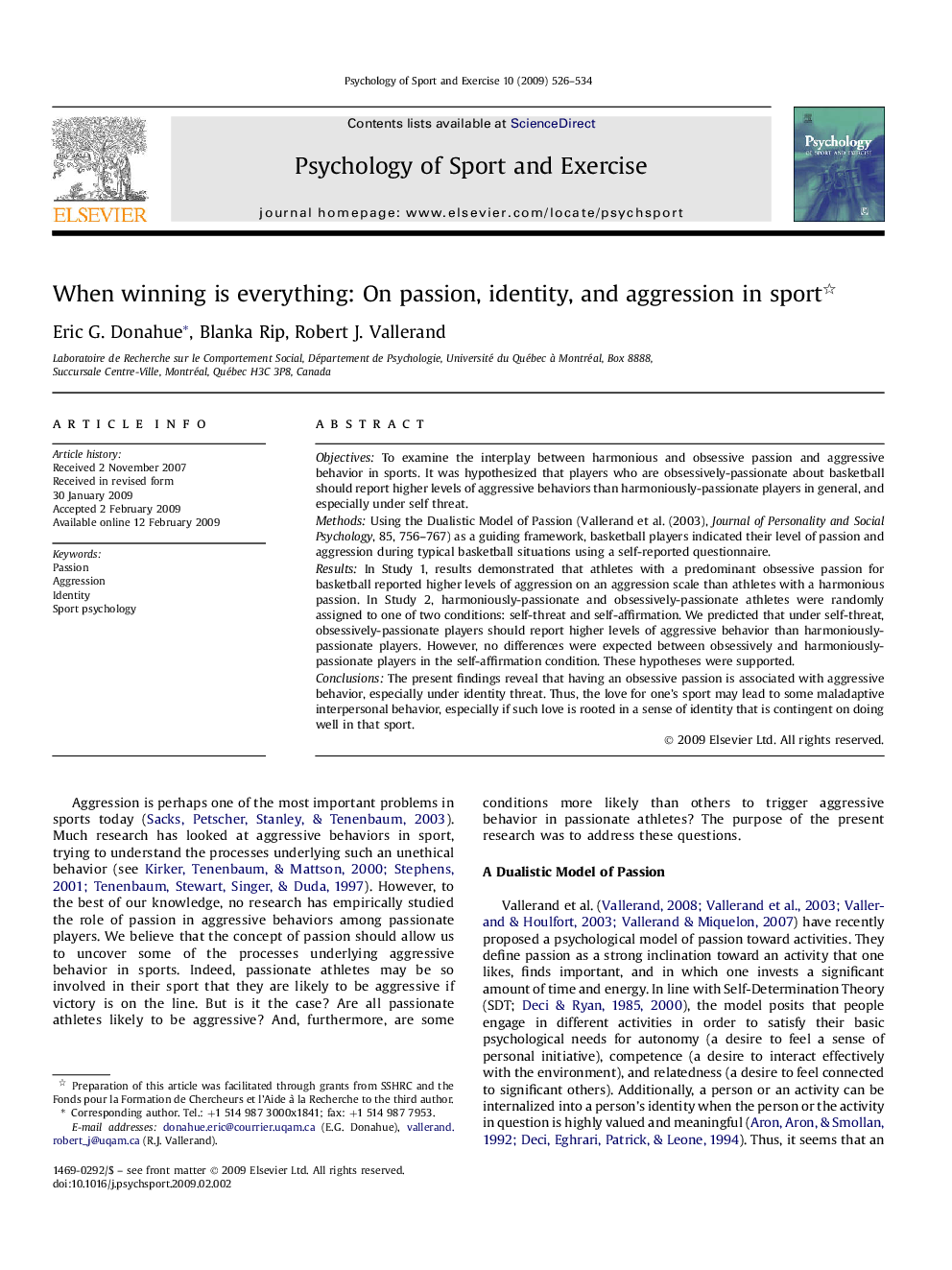| Article ID | Journal | Published Year | Pages | File Type |
|---|---|---|---|---|
| 894802 | Psychology of Sport and Exercise | 2009 | 9 Pages |
ObjectivesTo examine the interplay between harmonious and obsessive passion and aggressive behavior in sports. It was hypothesized that players who are obsessively-passionate about basketball should report higher levels of aggressive behaviors than harmoniously-passionate players in general, and especially under self threat.MethodsUsing the Dualistic Model of Passion (Vallerand et al. (2003), Journal of Personality and Social Psychology, 85, 756–767) as a guiding framework, basketball players indicated their level of passion and aggression during typical basketball situations using a self-reported questionnaire.ResultsIn Study 1, results demonstrated that athletes with a predominant obsessive passion for basketball reported higher levels of aggression on an aggression scale than athletes with a harmonious passion. In Study 2, harmoniously-passionate and obsessively-passionate athletes were randomly assigned to one of two conditions: self-threat and self-affirmation. We predicted that under self-threat, obsessively-passionate players should report higher levels of aggressive behavior than harmoniously-passionate players. However, no differences were expected between obsessively and harmoniously-passionate players in the self-affirmation condition. These hypotheses were supported.ConclusionsThe present findings reveal that having an obsessive passion is associated with aggressive behavior, especially under identity threat. Thus, the love for one's sport may lead to some maladaptive interpersonal behavior, especially if such love is rooted in a sense of identity that is contingent on doing well in that sport.
